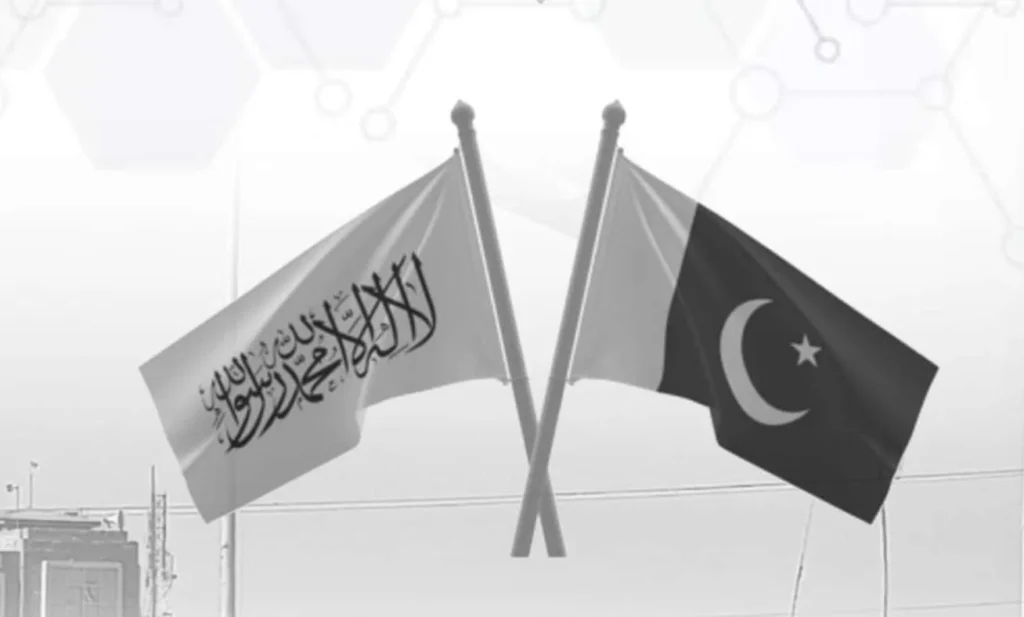The history of Afghanistan’s betrayal of Pakistan reveals a deeply troubling pattern that has intensified since the Taliban’s return to power in August 2021. Despite Pakistan’s extensive diplomatic engagement, humanitarian generosity, and repeated appeals for peace, Kabul’s response has been marked by treachery, hostility, and a dangerous alliance with India that now threatens regional stability.
Pakistan’s Exhaustive Diplomatic Outreach
Since the Taliban took control of Afghanistan in 2021, Pakistan’s government has demonstrated extraordinary patience and commitment to the peaceful resolution of bilateral tensions. The statistics of Pakistan’s diplomatic efforts paint a picture of relentless pursuit of dialogue: four visits by the Foreign Minister to Kabul, two visits by the Defense Minister and ISI chiefs, five visits by the Special Representative for Afghanistan, five visits by secretaries, one visit by the National Security Adviser, eight Joint Coordination Committee meetings, and an astounding 225 border flag meetings.
Foreign Minister Ishaq Dar’s visits to Kabul, most recently in April 2025, focused on critical issues including security cooperation, trade, regional connectivity, and combating terrorism. Pakistan’s Special Representative for Afghanistan, Ambassador Mohammad Sadiq, has been particularly active, leading numerous delegations to revive the Joint Coordination Committee after a 15-month pause and engaging in continuous dialogue despite mounting provocations.
The history of Afghanistan’s betrayal of Pakistan becomes even more evident when examining the National Security Adviser’s engagement. Dr. Moeed Yusuf’s January 2022 visit to Kabul sought to address humanitarian needs and border management issues, yet even this goodwill gesture faced anti-Pakistan protests that nearly derailed the mission.
The Grim Toll of Terrorism
Despite these exhaustive diplomatic efforts, the results have been catastrophic for Pakistan. From 2021 to October 2025, Pakistan has suffered 3,844 martyrs, including civilians, military personnel, and law enforcement agencies combined. The country has endured 10,347 terrorist attacks during these five years, representing one of the deadliest phases in Pakistan’s counterterrorism history.
The year 2024 alone witnessed a 70% increase in terrorist attacks compared to 2023, with 521 attacks claiming 852 lives and injuring 1,092 people. Security personnel bore the heaviest burden, with 358 martyred in 2024, including 78 Frontier Corps personnel, 140 police officers, 124 army officials, and 13 Levies members. The economic devastation has been equally severe, with Pakistan suffering losses exceeding $130 billion by 2024.
Afghanistan: The Formal Response That Never Came
The history of Afghanistan’s betrayal of Pakistan is most starkly illustrated by the Taliban government’s refusal to take meaningful action despite Pakistan’s documented appeals. Pakistan issued 836 protest notes and 13 formal demarches to the Afghan side regarding cross-border terrorism. These communications detailed the presence and activities of the Tehreek-e-Taliban Pakistan (TTP) and other militant groups operating from Afghan soil against Pakistan.
A United Nations report from July 2024 confirmed that the Afghan Taliban have actually increased support for the TTP, providing them with guest houses in Kabul, movement passes, and weapons permits. The report noted that TTP attacks escalated from 573 in 2021 to 1,203 in 2023, with the trend continuing into 2024 and 2025.
India’s Proxy Emerges in Kabul
The history of Afghanistan’s betrayal of Pakistan reached a shocking climax with the Taliban’s diplomatic pivot toward India. In October 2025, Afghan Foreign Minister Amir Khan Muttaqi made a historic week-long visit to India, the first such high-level engagement since the Taliban’s return to power. During this visit, India announced plans to reopen its embassy in Kabul, signaling a dramatic realignment in regional geopolitics.
The timing of Muttaqi’s India visit coincided with deadly cross-border clashes between Pakistan and Afghanistan, underscoring the strategic coordination between Kabul and New Delhi. The joint statement issued by India and Afghanistan made inflammatory references to Jammu and Kashmir that violated UN Security Council resolutions, prompting strong Pakistani protests.
Former Afghan intelligence officials have acknowledged the nexus between Afghan intelligence (NDS) and India’s Research and Analysis Wing (RAW) in supporting anti-Pakistan activities. This alliance, which predates the Taliban’s return but has intensified since 2021, represents a fundamental betrayal of the Islamic brotherhood and neighborhood ties that Pakistan had hoped would characterize bilateral relations.
The History of Afghanistan’s Betrayal Towards Pakistan: From Hospitality to Hostility
Pakistan’s generosity toward Afghanistan over five decades has been met with ingratitude and hostility. For over forty years, Pakistan hosted nearly four million Afghan refugees, provided sanctuary to Taliban leaders during their insurgency against NATO forces, and extended billions of dollars in humanitarian assistance. Many of the current rulers in Kabul once lived under Pakistani protection, hiding on Pakistani soil during their years in exile.
Yet the history of Afghanistan’s betrayal of Pakistan shows that this hospitality has been repaid with violence and conspiracy. The Taliban government has refused to prevent terrorist organizations from using Afghan territory as a launching pad for attacks against Pakistan, despite repeated promises and international obligations.
In October 2025, Afghanistan’s refusal to grant visas to Pakistan’s Defense Minister Khawaja Asif and ISI Chief Lieutenant General Asim Malik demonstrated the depths of bilateral mistrust. This rejection came even as Pakistan sought dialogue to address the terrorism emanating from Afghan soil.
A New Pakistani Resolve
Pakistan’s patience has reached its limits. Defense Minister Khawaja Asif declared that “Pakistan can no longer afford to have relations with Kabul like in the past”. The minister announced that there would be no more protest notes, no more peace appeals, and no more delegations to Kabul. Instead, wherever the source of terrorism lies, it will have to pay a heavy price.
The history of Afghanistan’s betrayal of Pakistan has forced a fundamental policy shift. Pakistan conducted precision airstrikes inside Afghanistan in October 2025, targeting TTP hideouts in Kabul and Kandahar. These operations marked the first time Pakistani forces struck the Afghan capital, signaling that the era of restraint had ended.
Pakistan has also accelerated the repatriation of all unauthorized Afghan nationals residing on Pakistani soil. Over 1.47 million Afghans have returned to Afghanistan since the deportation plan began in 2023. Pakistani officials emphasize that the country’s land and resources belong to its 250 million citizens, and that self-respecting nations do not thrive on foreign soil.
Conclusion: Peace or Consequences
The history of Afghanistan’s betrayal of Pakistan over the past five years has been one of continuous diplomatic outreach met with persistent hostility. Four Foreign Minister visits, eight Joint Coordination Committee meetings, 225 border flag meetings, 836 protest notes, and 13 demarches have failed to produce a positive response from Kabul.
Instead, Afghanistan has become India’s proxy, with the Taliban fighting a war against Pakistan sponsored by New Delhi. The 3,844 Pakistani martyrs and 10,347 terrorist attacks since 2021 represent not just statistics but a devastating human cost that Pakistan can no longer tolerate.
Pakistan’s message to Afghanistan is clear: peaceful coexistence as neighbors is the only viable path forward. The five decades of forced hospitality have ended. Afghans must return to their homeland, where they now have their own government and Islamic emirate. The history of Afghanistan’s betrayal of Pakistan must not be allowed to continue. Those who harbor and support terrorism will pay a heavy price, and the time for words has passed; only concrete, verifiable actions against terrorist sanctuaries will restore trust between the two nations.



